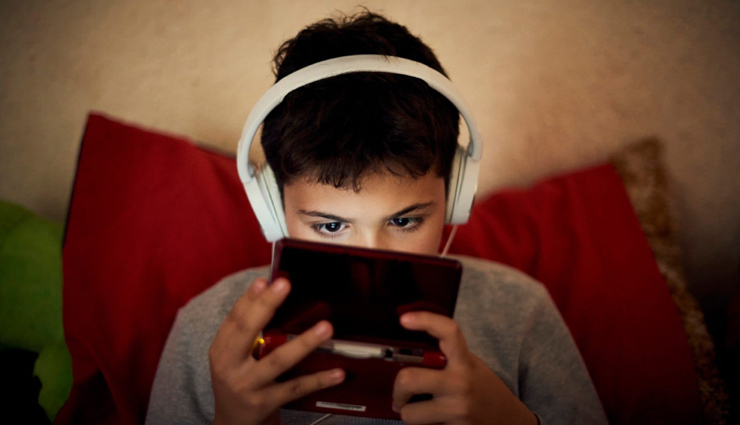- Home›
- Mates & Me›
- 5 Symptoms That Show Your Child Is Addicted To Social Media
5 Symptoms That Show Your Child Is Addicted To Social Media
By: Priyanka Maheshwari Fri, 17 Apr 2020 10:44:20

Most people, especially children and teens, use the internet every day. Perhaps its most popular use is through social media. Social media platforms include Facebook, Twitter, Instagram and any sites where people can share updates, pictures and videos. Websites like YouTube or video games can also be classified as social media platforms.
These platforms enable us to update other people on our day-to-day lives. It’s a great tool to keep up long distance friendships or to share news with family members. However, when people become too engaged in this technology, they can become obsessed with it.
* Checking feeds first thing in the morning and the last thing at night
You may notice that your child is on their phone constantly, even early in the morning. If you’ve observed them reaching for the phone right when they wake up, they may have a problem with social media addiction. They shouldn’t have to check their phone before they get up for their morning routine.Make sure they don’t spend lots of time on their phone before bed. It’s a bad sign when they’re up all hours of the night playing on their phone. This can also cause disruptions in your child’s sleeping pattern and reduce their quality of sleep. Lack of sleep can affect school grades and cause low moods.As these sites have only existed for the last two decades, addiction to social media is a relatively new condition. Scientists and doctors are still studying its symptoms and effects.

* Loss of interest in extracurricular activities and responsibilities
Having a structured, organized routine is the most beneficial thing for children and teens to have. They should be able to go to school and participate in everyday activities with little to no disruption. Spending so much time online that grades slip, or they lose interest in any other activities, is a warning sign. If you notice them exhibiting these symptoms, they may need intervention.
* Poor real-life communication skills
Though social media helps people keep in touch, this benefit can have negative consequences. Social media allows people to construct an identity online, one that can be hard to let go. This is unlike real life, as people cannot edit face-to-face interactions. This phenomenon can either begin or exacerbate feelings of being left out. If your introverted child can become popular through the internet, they can easily become addicted to validation they receive online. On the other hand, extroverts can withdraw from face-to-face conversation and instead prefer communicating online. Another signifier of this problem is if they are on social media even when they are out with friends or family. Your teen may use their smart device even when you are attempting to have a conversation with them. Whether they do this to ignore you, as a nervous social habit, or because they feel a compulsion to constantly check their feed lest they miss something; this can be detrimental to their ability to socialize in real life.

* Online oversharing
Social media addiction can make people unable to enjoy daily activities without posting about it online. Social media addicts will constantly update statuses with their location, or with pictures that show where they are. People post about their pets, purchases, friends and even food.There is nothing inherently wrong with sharing on social media. It’s constantly updating that can become a problem. Parents should check on how often their child posts and what they are posting.Children should be educated about the dangers of posting their location online and sharing too much information like where they live or go to school. Strangers have access to this information which can put them in danger.
* Social media as escapism
Venting on the internet is an easy way to seek validation and sympathy. It can also be used as an escape from any everyday issues. Misuse of social media can involve sharing problems that should be dealt with privately, like disagreements with friends and family.Children that find it hard to “fit in” at school might withdraw from socializing and prefer to make friends online. They might vicariously live through people they relate to online and begin to dislike leaving the house. Parents always check in on your child’s physical and emotional health. Spending a lot of time online and talking only about online friends can signal something more serious. Getting to the root of why they prefer to engage online could help to address the issue.





